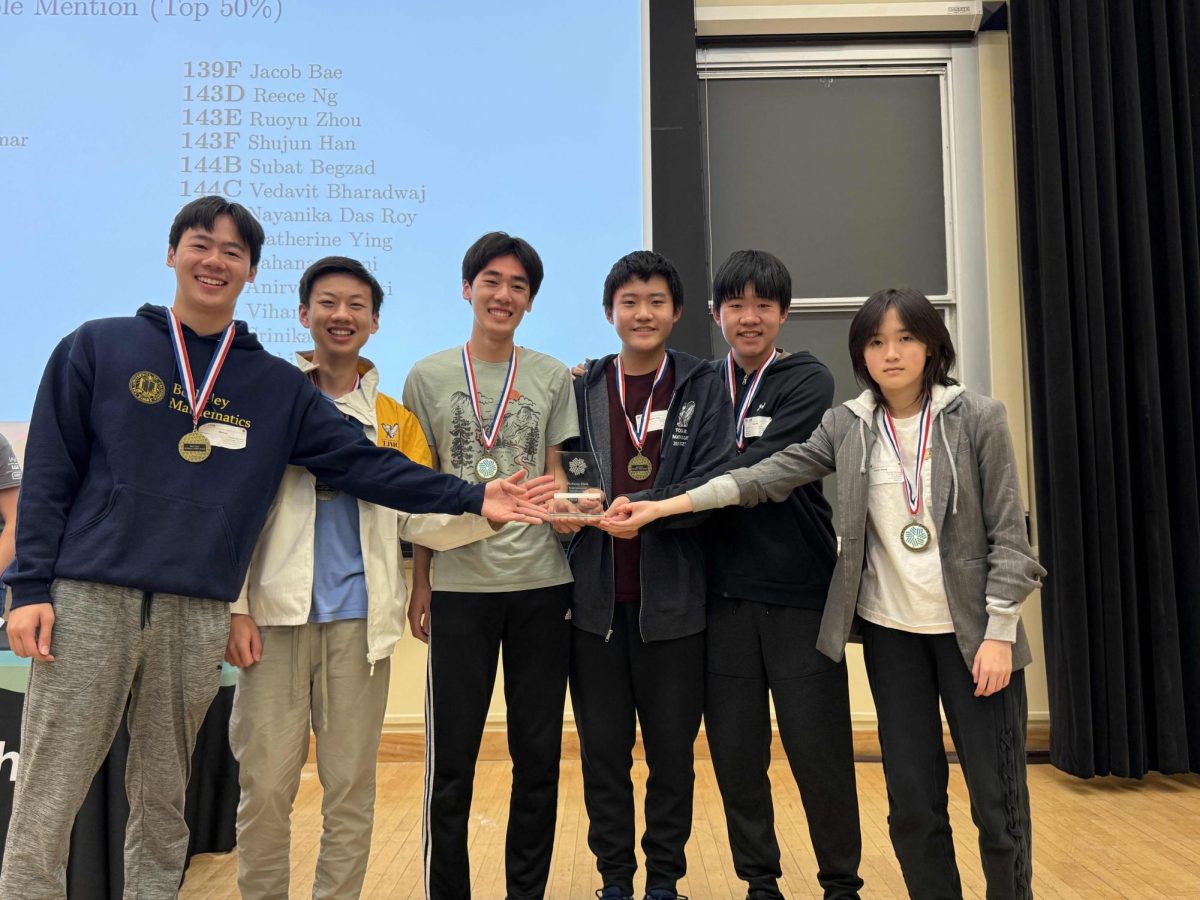Students in English 11 Honors teacher Amy Keys’ class have been cramming for their final lately, but it’s not a test.
These students have been decked out in white-collared shirts, black slacks and gold crowns practicing their “Hamlet” performances in spots around campus.
Rather than testing her students with a written test, both Keys and English 11 Honors teacher Natasha Ritchie have chosen to evaluate their students’ comprehension and analytical skills through their performances. After reading “Hamlet” in November, students were assigned scenes from the play to act out during their finals period.
“This is a great project because it is engaging, creative and collaborative, with both an individual and group component to it,” Keys said. “Students also do a fair amount of writing, as they produce a director's notebook with analysis of scenes and characters as well as detailed annotations on the text that show their examination of the text's rhetorical and literary devices.”
Performance-based finals allow students to have fun while critical and creative with challenging text, all skills that are central to the core values of the English department.
Junior Colina Guan, who is in Keys’ third-period class, prefers these unorthodox finals compared to multiple-choice exams.
“It is helpful to have something that is entertaining yet educational,” Guan said. “It definitely eases the stress of finals week for me.”
Keys also asks her English 10 students, who have been studying “Julius Caesar,” to perform a scene from the Shakespearean play in the place of a written assessment. For the past several weeks, students have done in-class discussions, Socratic seminars and group work to prepare for their presentations.
“The great thing about Ms. Keys’ final is that ‘Julius Caesar’ was meant to be a play, not something we read at tables,” sophomore English 10 student Roshan Verma said. “I hope that next year we have a similar final, because I work better in a group and feel like skits help me learn more about how literature works.”
While these English classes have decided to give their students performance-based finals, some teachers such as Spanish teacher Arnaldo Rodriguex have chosen to do away with the final entirely. In its place, Rodriguex has planned a quesadilla party for his 5 AP Spanish classes.
“Having a final would be a repletion of what we already do in class,” Rodriguex said. “My students work very hard in this class and a fun activity would be a reward for their hard work.”
Senior Devin Fleharty, who is in Rodriguex’s second-period 5 AP Spanish class, said having a final would not help students’ education.
“Throughout this semester, we have mainly been reviewing concepts that we earned in previous Spanish classes, such as in Spanish 4 Honors,” Fleharty said. “Rather than learning grammar, we spend most of our time on cultural presentations, which I enjoy learning about because [Hispanic culture] differs so much from ours.”
Though many students enjoy the relief of having non-testing finals that don’t require hours of memorization, others think there is a role for the traditional test-based final.
English 11 Honors student Prashant Malyala sees the benefits of traditional methods. “I like tests because all you really have to do is study and a lot less busy work is involved.”
But Keys isn’t planning to give an old-school final with her juniors.
“Beyond all of its pedagogical value, I just think it's just a lot of fun,” Keys said. “Students work together, support each other, and get to see and work with classmates in a way they haven't done before.”




























